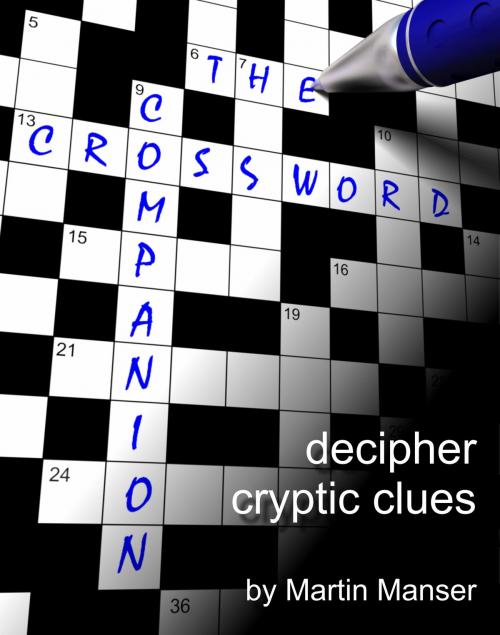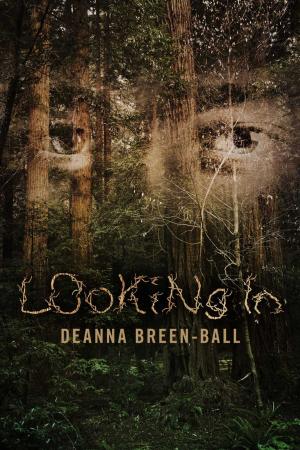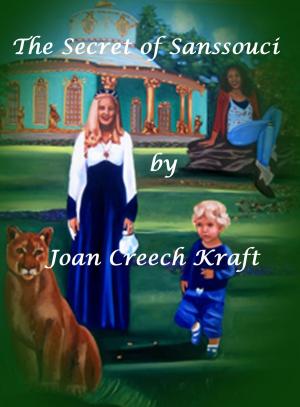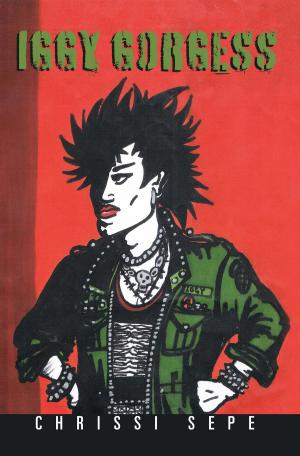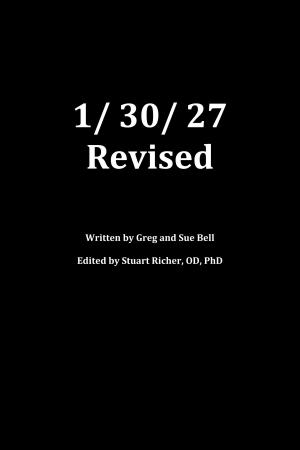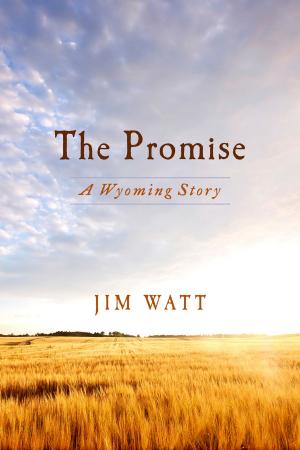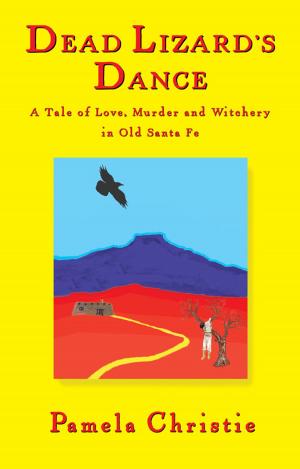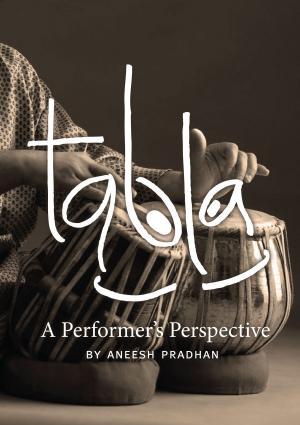| Author: | Martin Manser | ISBN: | 9781483531427 |
| Publisher: | BookBaby | Publication: | July 1, 2014 |
| Imprint: | Language: | English |
| Author: | Martin Manser |
| ISBN: | 9781483531427 |
| Publisher: | BookBaby |
| Publication: | July 1, 2014 |
| Imprint: | |
| Language: | English |
The solving of crossword puzzles is a kind of aerobics for the little grey cells. It puts one’s mental suppleness to the test, it taxes the staying power of one’s vocabulary, it usually produces no immediate reward, but completing the exercise gives a satisfying feeling of achievement. A fascination with words – their multiplicity, variety, oddity, their slippery ambiguity and their often chameleon-like ability to change – lurks within many people even if they have no reason to use words other than straightforwardly in their ordinary lives. It provides guidance on: Quick crosswords Cryptic crosswords Clues and cues Anagrams Anagram cues Other cryptic devices This book is intended to provide basic assistance to anyone who needs help in solving a crossword clue. In the first instance it offers a range of words of equivalent meaning, synonyms, for many common terms. Since almost all crossword clues come with an indication of the number of the letters forming the answer, the basic principle of organization in the book is based on the number of letters in any given word. This applies not only to all lists of synonyms, but to the majority of longer lists of things. For greater clarity, where words have several different functions and different meanings, the synonyms are divided up in accordance with the different senses, so that a typical entry looks like this: game I n 1 (4) play; (5) sport; (7) pastime; (9) amusement; (10) recreation; 2 (5) event, match, round; (6) partie; (7) contest; 3 animals hunted for sport; II adj 1 (5) eager; ready; (6) willing; (5) [cross-reference to] brave, plucky; (8) spirited. ‘Game’ is used as both a noun and an adjective. Roman numerals in bold type (I, II etc) separate off the different parts of speech. Arabic numerals in bold (1, 2, 3) separate off the various senses in which a word may be used in a particular part of speech. This subdivision is not too hard and fast, for, as noted above, crosswords depend on the ability of words to possess different meanings and operate as different parts of speech. For reasons of space, it is not always possible to give all the possible synonyms at every entry. If the word ‘game’ is used as or in a clue, the answer will quite often be the name of a particular game. The main entry only contains synonyms for the generic term ‘game’. The names of specific games are given in a list following the main entry. The book also notes words that are frequently used as cryptic ‘cues’. Where a word is often used cryptically, its cryptic function is indicated in a separate subsection headed by a Roman numeral at the end of the main entry. Where the reader encounters the notes cryptic ANAGRAM CUE or cryptic HIDDEN WORD CUE, he or she is directed to the relevant section of the introduction. Further, the book contains many notes and lists featuring general-knowledge information. The name of, for instance, a Greek or Roman god or a Shakespearean character may be asked for or alluded to in a clue. What counts as general cultural property that a solver can reasonably be expected to possess changes as time goes on, and we may be felt to err on the conservative side in what we offer here, but it reflects what we have found one is usually expected to know about when tackling mainstream crosswords. This book will be a useful aid to everyone who needs help in solving crossword clues.
The solving of crossword puzzles is a kind of aerobics for the little grey cells. It puts one’s mental suppleness to the test, it taxes the staying power of one’s vocabulary, it usually produces no immediate reward, but completing the exercise gives a satisfying feeling of achievement. A fascination with words – their multiplicity, variety, oddity, their slippery ambiguity and their often chameleon-like ability to change – lurks within many people even if they have no reason to use words other than straightforwardly in their ordinary lives. It provides guidance on: Quick crosswords Cryptic crosswords Clues and cues Anagrams Anagram cues Other cryptic devices This book is intended to provide basic assistance to anyone who needs help in solving a crossword clue. In the first instance it offers a range of words of equivalent meaning, synonyms, for many common terms. Since almost all crossword clues come with an indication of the number of the letters forming the answer, the basic principle of organization in the book is based on the number of letters in any given word. This applies not only to all lists of synonyms, but to the majority of longer lists of things. For greater clarity, where words have several different functions and different meanings, the synonyms are divided up in accordance with the different senses, so that a typical entry looks like this: game I n 1 (4) play; (5) sport; (7) pastime; (9) amusement; (10) recreation; 2 (5) event, match, round; (6) partie; (7) contest; 3 animals hunted for sport; II adj 1 (5) eager; ready; (6) willing; (5) [cross-reference to] brave, plucky; (8) spirited. ‘Game’ is used as both a noun and an adjective. Roman numerals in bold type (I, II etc) separate off the different parts of speech. Arabic numerals in bold (1, 2, 3) separate off the various senses in which a word may be used in a particular part of speech. This subdivision is not too hard and fast, for, as noted above, crosswords depend on the ability of words to possess different meanings and operate as different parts of speech. For reasons of space, it is not always possible to give all the possible synonyms at every entry. If the word ‘game’ is used as or in a clue, the answer will quite often be the name of a particular game. The main entry only contains synonyms for the generic term ‘game’. The names of specific games are given in a list following the main entry. The book also notes words that are frequently used as cryptic ‘cues’. Where a word is often used cryptically, its cryptic function is indicated in a separate subsection headed by a Roman numeral at the end of the main entry. Where the reader encounters the notes cryptic ANAGRAM CUE or cryptic HIDDEN WORD CUE, he or she is directed to the relevant section of the introduction. Further, the book contains many notes and lists featuring general-knowledge information. The name of, for instance, a Greek or Roman god or a Shakespearean character may be asked for or alluded to in a clue. What counts as general cultural property that a solver can reasonably be expected to possess changes as time goes on, and we may be felt to err on the conservative side in what we offer here, but it reflects what we have found one is usually expected to know about when tackling mainstream crosswords. This book will be a useful aid to everyone who needs help in solving crossword clues.
